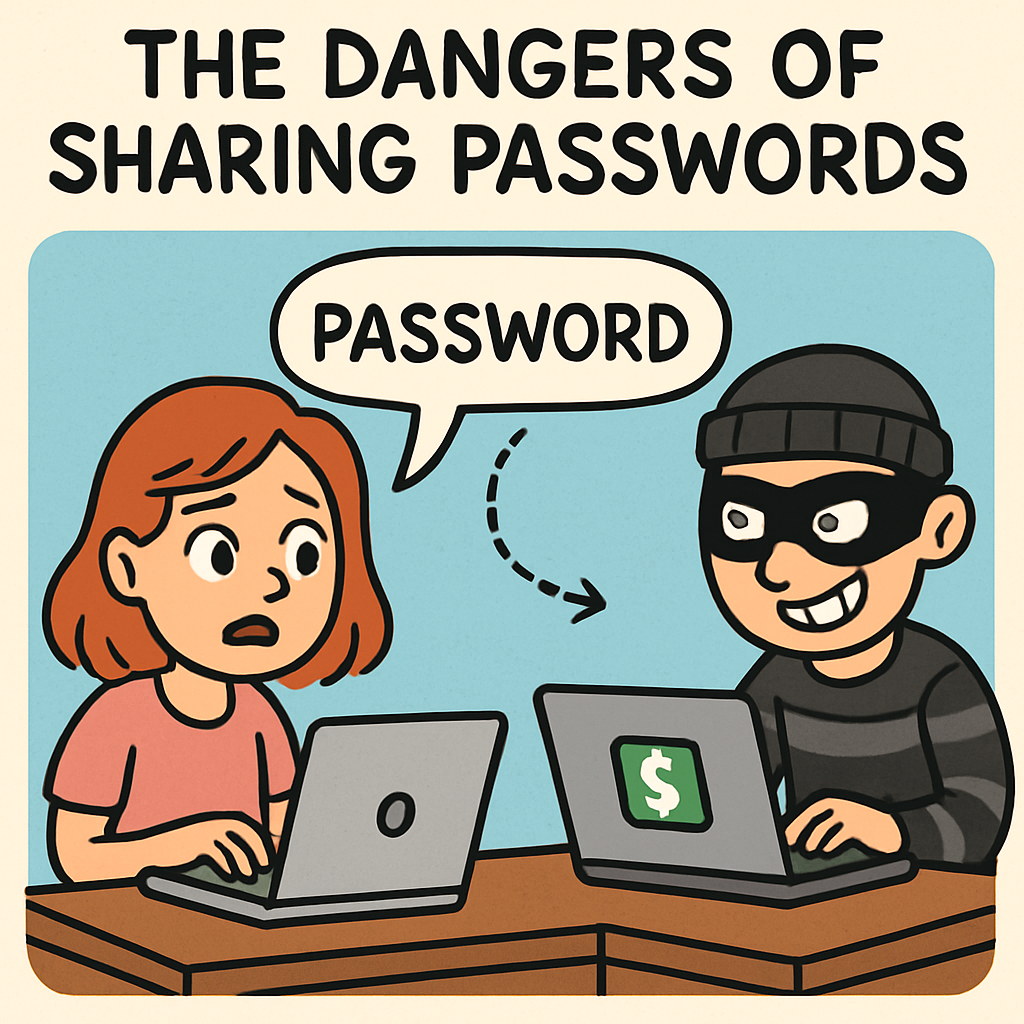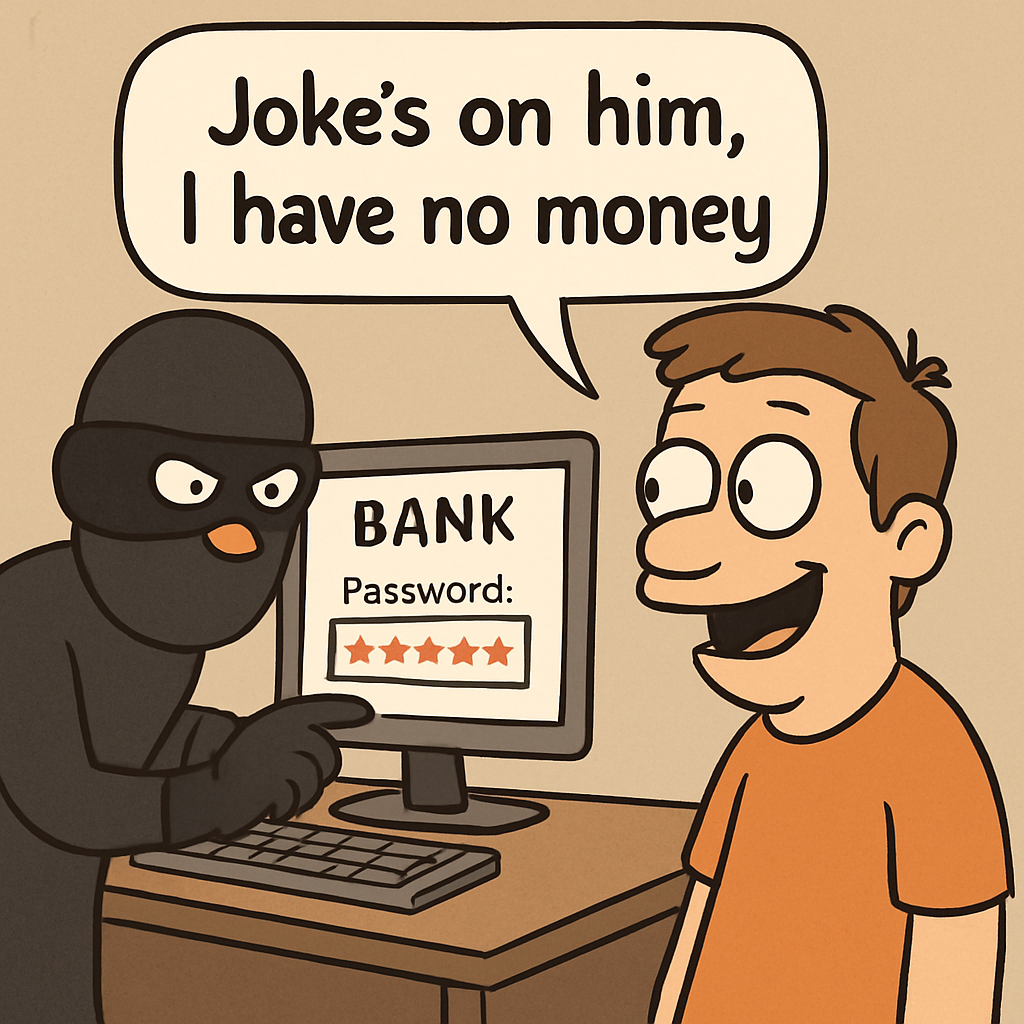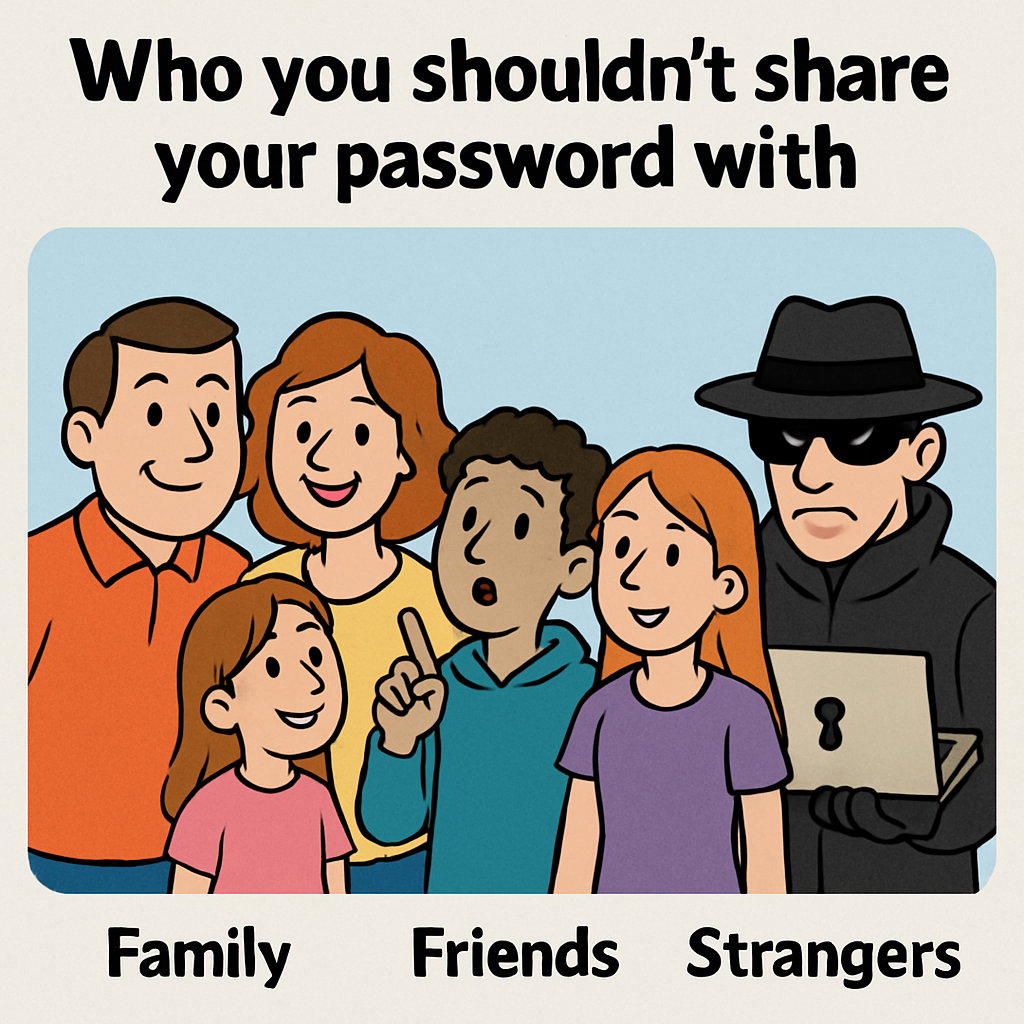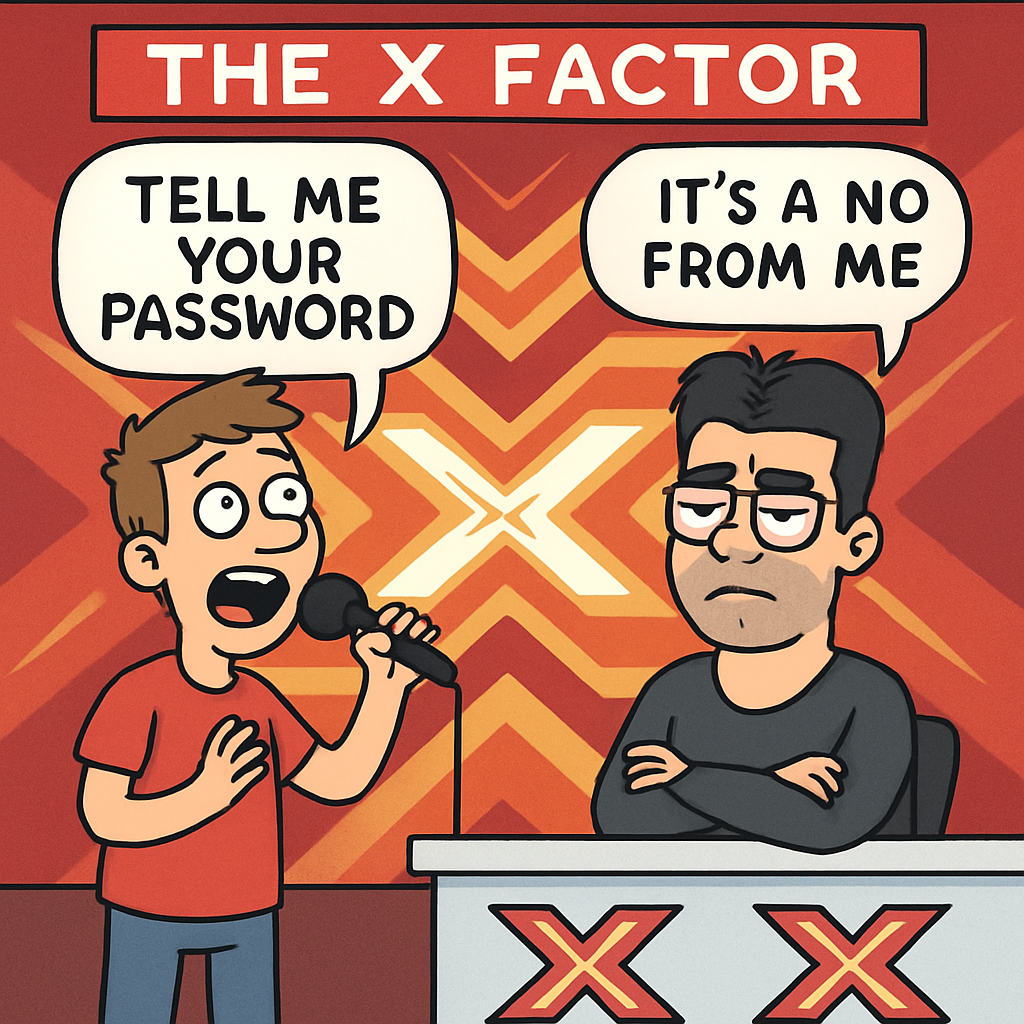 Welcome to the Lesson: The Dangers of Sharing Passwords
Welcome to the Lesson: The Dangers of Sharing PasswordsIn this lesson, you will explore the importance of passwords in protecting your online accounts. You will learn about the risks associated with sharing passwords, identify individuals with whom you should never share them, and discover practical strategies to keep your passwords safe and secure.
Think of passwords as the keys to your online world. Just as you would not hand over the key to your home to a stranger, it is essential never to share your passwords with anyone. This analogy highlights how passwords safeguard your personal information and maintain your privacy online.

Passwords serve as essential tools for safeguarding our online accounts against unauthorised access. They function much like a lock on a door, ensuring that only authorised individuals can enter and interact with the contents within.
Primarily, passwords protect our personal information, including details such as our full name, home address, date of birth, and other sensitive data. By requiring a password, online services verify our identity and prevent strangers from viewing or altering this information.
Without passwords, any person could gain entry to our accounts, potentially leading to the misuse of our data. For instance, someone might read private messages, make unauthorised purchases, or even impersonate us online. Therefore, passwords are crucial for maintaining privacy, security, and control over our digital presence.
 What Can Happen If We Share Our Passwords?
What Can Happen If We Share Our Passwords?Sharing your password with another person can result in serious consequences, compromising the security of your online accounts and personal information. It is important to understand these risks to appreciate why passwords must remain private. Below are some key dangers associated with sharing passwords:
These examples illustrate how sharing a password can quickly escalate into significant problems. Always remember that once shared, you lose control over who might access or misuse your information.
 Who Should You Never Share Your Password With?
Who Should You Never Share Your Password With?It is essential to maintain the privacy of your passwords to ensure the security of your online accounts. Sharing passwords, even with people you think you can trust, can lead to unintended risks and potential misuse of your personal information. Below is a list of individuals and situations where you should never share your password:
 What If Someone Asks for Your Password?
What If Someone Asks for Your Password?It is important to know how to respond if someone asks for your password. Sharing your password can put your personal information at risk, so you must handle these situations carefully and confidently. Below are some key steps to follow:
By following these steps, you can protect yourself and maintain control over your online security. Always prioritise your privacy in such situations.




